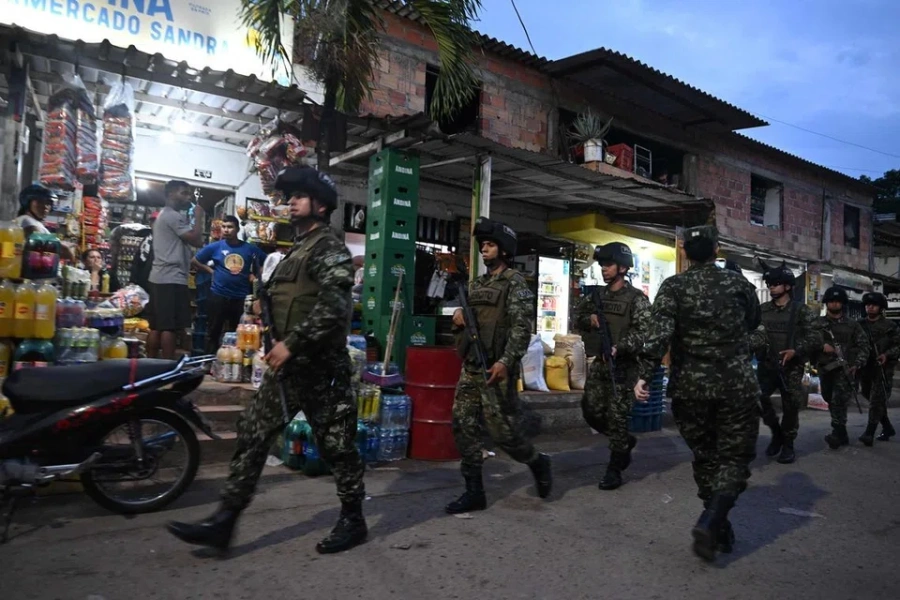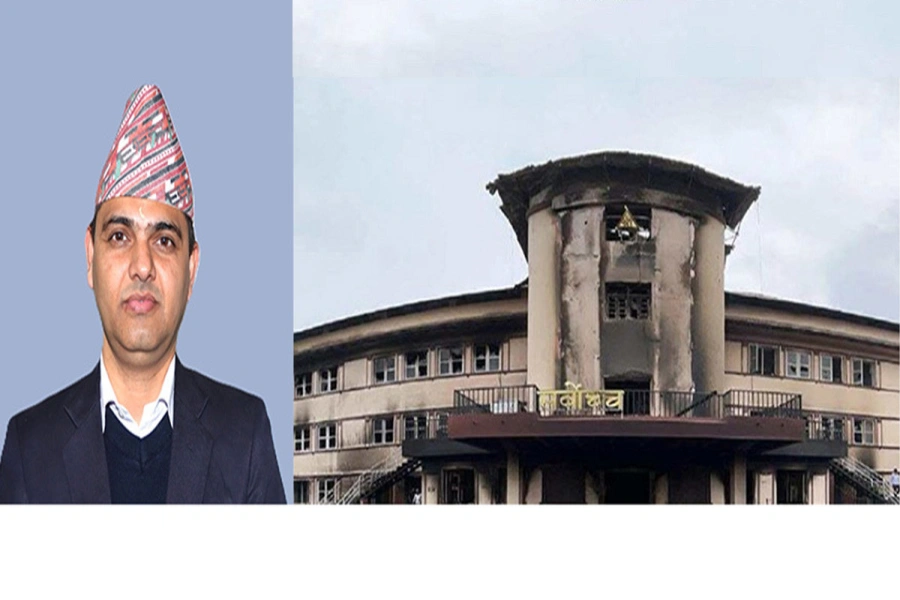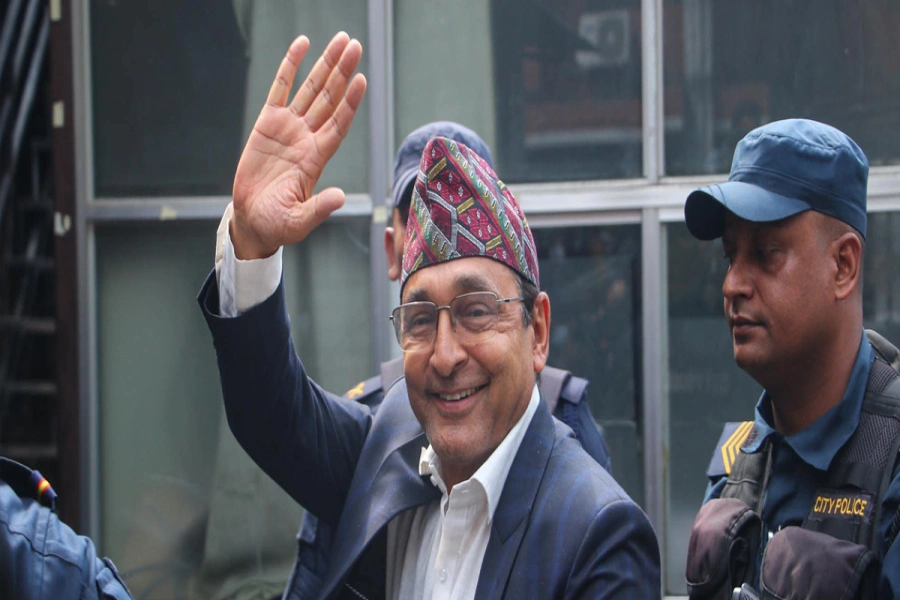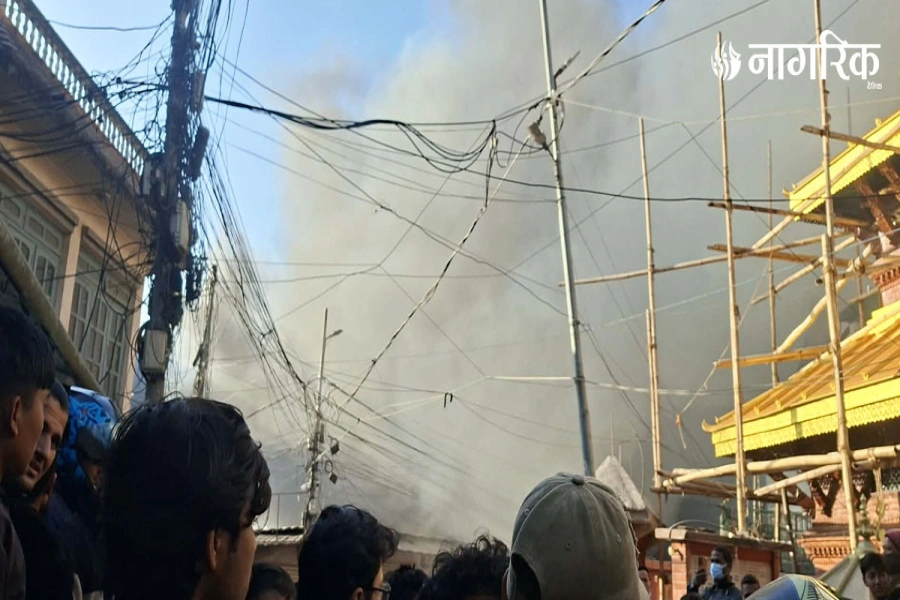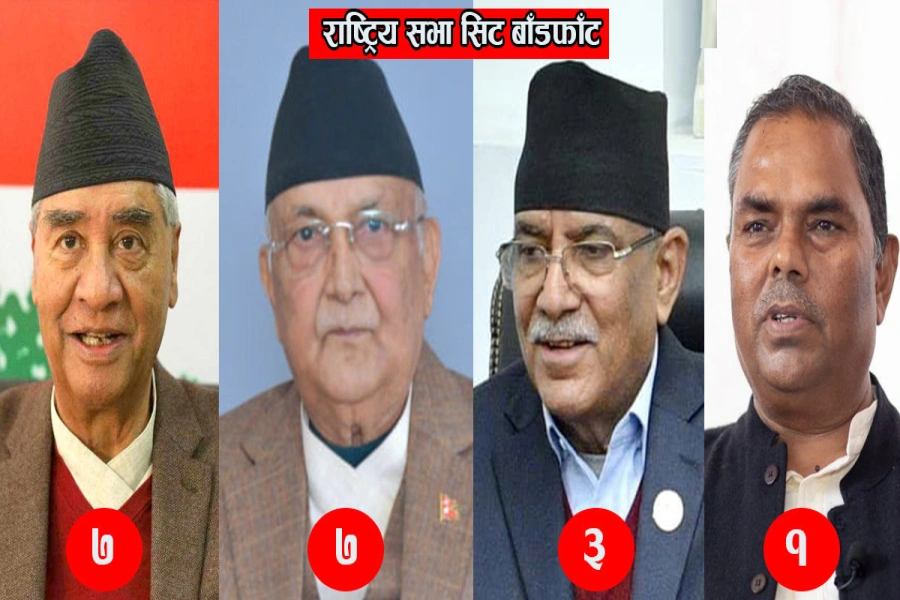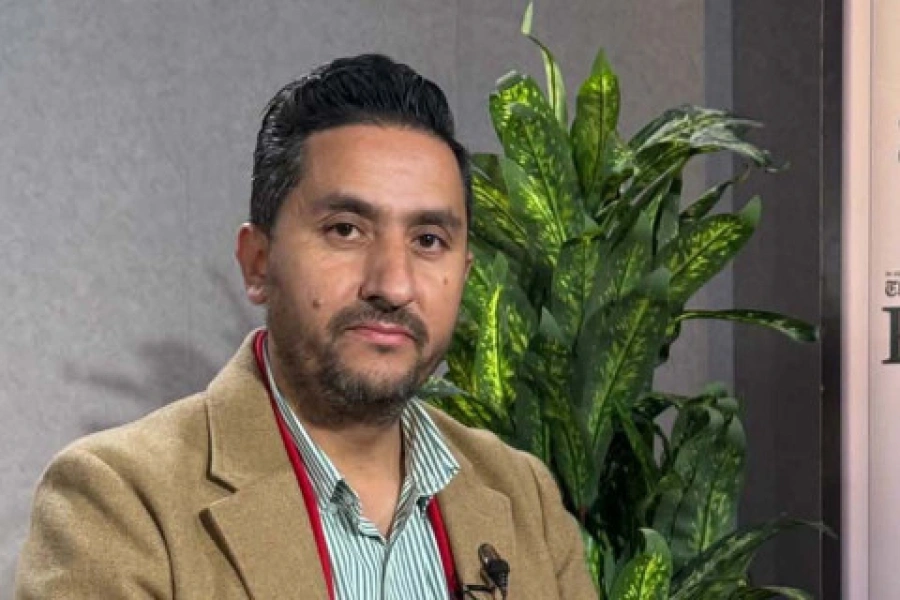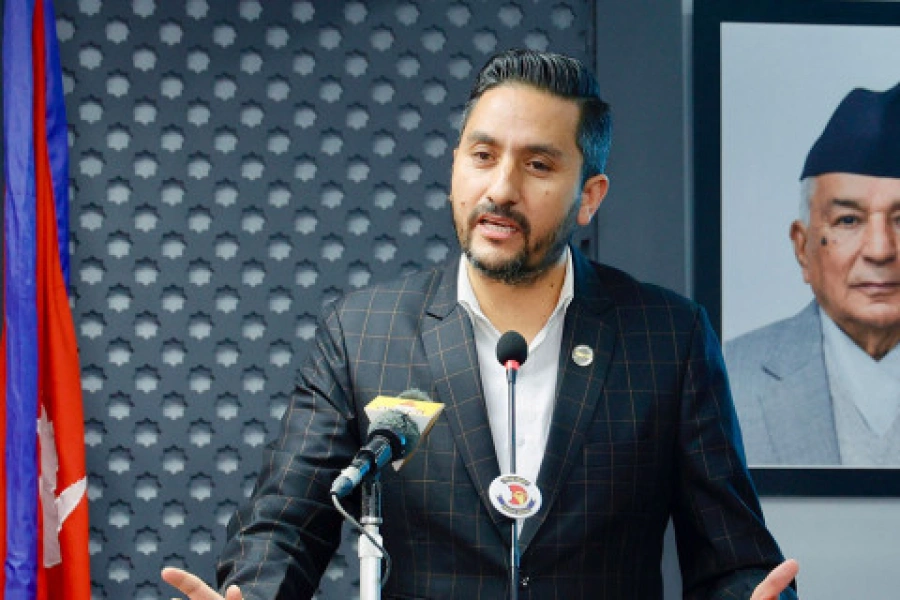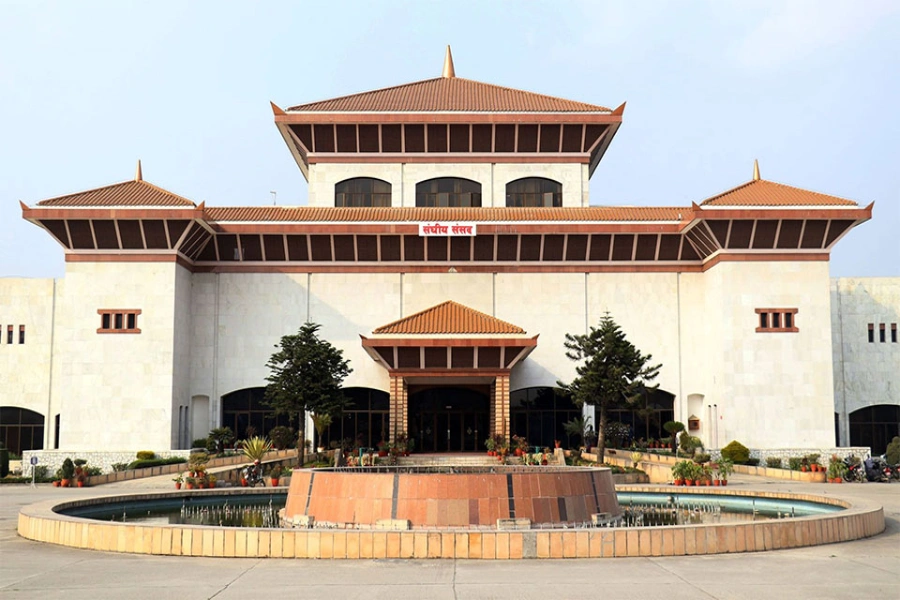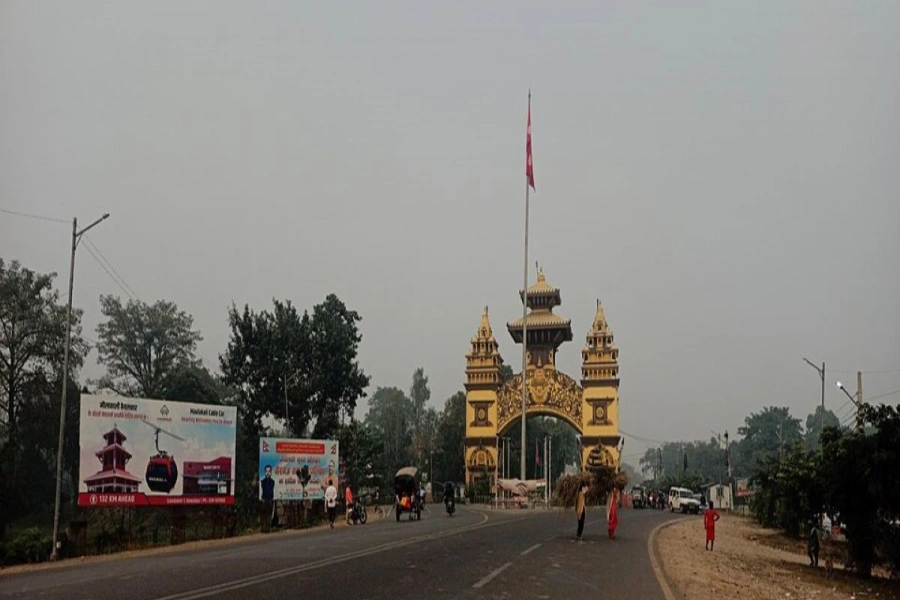KATHMANDU, Aug 21: A total of 104 "senior" officers in Nepal Police and Armed Police Force (APF) are going to retire at the same time as police regulations remain unrevised for a long time. As many as 89 officers ranging from Inspector to DIG in Nepal Police and 15 APF officers are going to retire simultaneously. On the one hand, this will open the way for promotion for many high-level officers, while on the other hand, the state will have to bear a huge loss when the officers in the age group of 50 to 53 years retire.
If there is no change in the police regulations, on September 1, 89 high-ranking police officers will retire on the same day. Due to the 30-year service period, when such a large number of Nepal Police officers go home together, a big 'vacuum' will be created at the top level, so the officers who are in line for promotion will get an opportunity. One DIG on September 1 and another AIG on September 6 are also going home. DIG Bishnu KC is retiring on September 1. On September 1, many other police officers are also going to retire. Many of the officers who are going to retire are under 55.
This is the first time that a large number of police officers are going to retire due to the 30-year service limit. If the provision of 30-year service period is abolished immediately by amending the police regulations, their retirement process will be stopped. However, there are two judgments of the Supreme Court seeking to amend the regulations. After some police officers filed a writ petition demanding the abolition of the 30-year service period, the Supreme Court directed the government to abolish the 30-year period only by making provisions in the Police Act.
On April 3, 2014, the Supreme Court issued a directive order to the Government of Nepal, through a special bench of five judges, to review and address the provisions related to the retirement of police personnel and service conditions in the police regulations and to incorporate them into the law. Even after the issuance of the new police regulations on April 21, 2014, the Supreme Court's order from 2014 was not implemented. Subsequently, affected police officers had to return to the court seeking judicial remedies. At that time, a five-member constitutional bench of the Supreme Court issued another directive order to the Government of Nepal on January 1, 2016, to review and address the provisions related to retirement and service conditions of police personnel in the police regulations and incorporate them into the law. However, this order was also not implemented.
105 police officers retire simultaneously today following SC or...

As the Supreme Court's order has not been implemented for a decade, on September 1, 2024, the following officers will go on leave: 1 DIG, 11 SSPs, 12 SPs, 30 DSPs, and 35 Inspectors. A group of 105 assistant sub inspectors (ASIs), who experienced the most hardship during the Maoist insurgency and are considered capable and experienced officers, will retire at the age of 50 or 51. The APF also has a similar number of such officers. In 1994, 432 individuals were recruited as assistant sub inspectors (ASIs). Among them, 15 lost their lives during the armed conflict.
The remaining few have either already retired or resigned, leaving only 108 members of this group still in service. Of these, 90 were transferred from the Nepal Police to the Armed Police Force. On September 1, 18 officers are set to retire together. Until 1992, the retirement of police staff was governed solely by age limits and tenure (both). In other government services, the same system is in place, and police officers argue that discriminatory regulations should be abolished. The 1992 police regulations introduced an additional provision for retirement based on service tenure, increasing the criteria for retirement from two to three.
Since the recommendation has already been made by the police headquarters to remove the 30-year service provision from the proposed Police Act, police officers have been urging the Ministry to immediately present the proposed Police Act to parliament and to implement the Supreme Court's order by removing the provision in Section 127(1)(d) of the police regulations, which affects them directly. Despite these requests, the ministry has not shown any sign of taking action.
The police officers argue that by removing only the service tenure provision from Section 127(1)(d) of the police regulations, the retirement path based on age limits and tenure would remain open, and therefore, there would be no obstruction to the career development of other police personnel. The Ministry of Home Affairs had formed a task force to study this issue. The task force has already submitted its report, but the report has not yet been implemented. Prime Minister and UML Chairman KP Sharma Oli has publicly advocated for the removal of the service tenure limit. DIG Bishnu KC, who is set to retire on September 1, is currently serving in the Bagmati Province.
SSP Jeewan Kumar Shrestha is currently the acting chief at the Traffic Police Office. He became the acting chief of the office DIG Posh Raj Pokhrel’s retirement. Rewati Dhakal is working in the Police Welfare Department. SSPs Kisan Singh Thapa, Dilliraj Bista, Belbahadur Pandey, Dinesh Raj Mainali, Nabin Raj Rai, Rabikumar Paudel, Birbahadur Oli, Chandradev Rai, and Rabindra Regmi are also set to retire on September 1. Similarly, SPs Krishna Prasai, Prem Bahadur Basnet, Rajendra Babu Regmi, Laxmiraj Adhikari, Devendra Bahadur Pal, Bishnu Hari Koirala, Awadesh Bista Chhetri, Narendra Kumar Karki, Tekunand Iwa Limbu, Chitrabahadur Gurung, and Nabin Kishor Pradhan are also set to retire.
DSPs Shriram Bhandari, Ramkrishna Sapkota, Ganesh Bahadur Shrestha, Bharat Bahadur Chaudhary, Ainbahadur Malla, Kiran Prasad Neupane, Hombahadur Thapa, Manoj Kumar Shrestha, Janakbahadur Malla, Rajan Kumar Gautam, Mahesh Basnet, Bharat Kumar Shah, Khagendra Prasad Rijal, Bhojraj Pandey, Lalbahadur Bam, Narayan Bahadur Shrestha, Rakesh Kumar Podar, Gobinda Pant, Dalram Tamata, Madanbahadur Kunwar, Devbahadur Kunwar, Hikmatbahadur Bohara, Anilkumar Upreti, Shailendra Kumar Khadka, Uddhav Prasad Adhikari, Rambahadur Chand, Sujit Kumar Ojha, Phanindra Ranabhat, Bijay Thapa, and Jamuna Kumari Basnet are also retiring.
Police Inspectors Yograj Neupane, Shantar Ram Karki, Hira Bahadur KC, Khemraj Kadayat, Saroj Kumar Thakurathi, Jairam Banta, Bhuwan Bhatt, Krishna Rana Magar, Omprakash Wagle, Bijulinath Yogi, Gindra Bahadur Bogati, Khim Bahadur Gharti Magar, Arjun Prasad Pokhrel, Udayman Dubedi, Kashiraj Regmi, Haribishnu Dhakal, Rabibhushan Prasad Yadav, Rajendra Prasad Yadav, Uday Singh Sijapati, Mohan Thapa, Kalendra Vikram Shah, Man Prasad Shrestha, Kisan Chand Thakuri, Awadhkishor Ojha, Bijay Bhandari, Bhim Bahadur Karki, Prem Bahadur Bohra, Narapati Bhatta, Jagat Damai, Meghnath Chapagai, Nilam Bahadur Bhandari, Tirtha Bahadur Bhandari, Jagadish Paudel, Gopal Chalise, and Kamal Acharya are also retiring. After their retirement, about 200 positions will be vacant in the Nepal Police.
Similarly, from the Armed Police Force, DIGs Durga Bhattarai and Abhi Khatri, along with SSP Purna Saud, are set to retire on September 1. The Armed Police Force has announced that 15 DSPs, including SSP Bishnu Bhattarai, will also be retiring. DIG Khatri is currently stationed in Surkhet. Some officers from his batch, including Uddhav Rawal from the Physical Training School, are also retiring. Battalion Commander Amar Air from Mahottari is among them.




